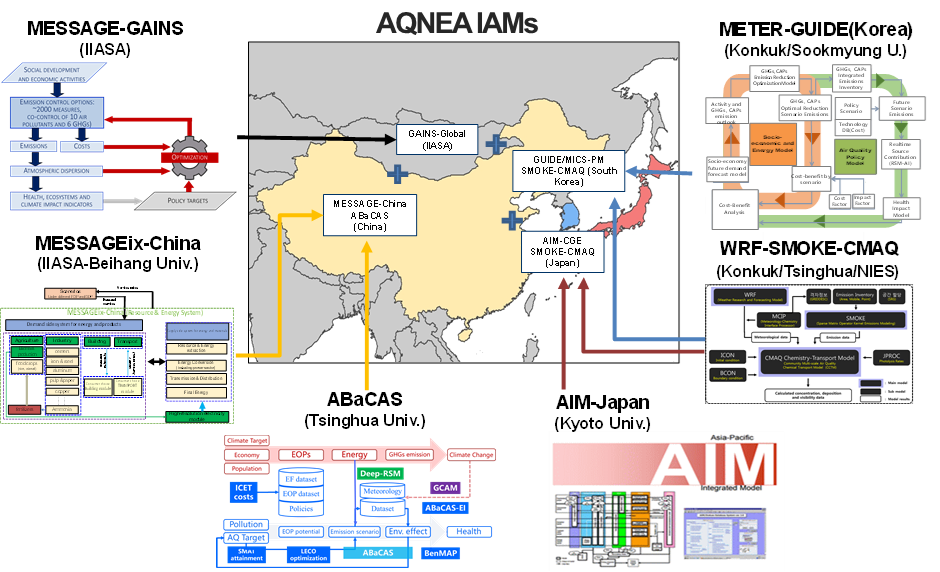
IIASA is partner of the project AQNEA to develop and establish a systematic approach for the integrated management of air quality across Northeast Asia.
Air quality across Northeast Asia has been improving driven by increasingly more stringent and ambitious national policies. However, much remains to be done to consistently attain both national air quality standards and the WHO recommended ambient PM2.5 concentrations below 10 ug/m3 (updated to 5ug/m3 on September, 2021). In particular, successful achievement of the WHO standard will likely require longer term locally, regionally, and internationally coordinated policy. There is scope for improved management of air quality in the region by designing policies exploring their cost-efficiency but also considering transboundary pollution aspects, exchange of experience across the region and other synergistic effects. Science can help to objectively analyze various future scenarios and explore both national and international collaborative efforts in battling air quality at different regional scales.
The objective of the AQNEA project is to develop and establish a systematic approach for the integrated management of air quality across Northeast Asia. This objective will be achieved in a collaborative effort involving researcher groups from Korea, China, Japan, and IIASA jointly developing consistent regional database with principal data and scenarios necessary to model current and future evolution of air pollution, specifically ambient fine particulate matter, in the region. Several alternative scenarios will be developed and analyzed with respect to compliance with the national standards, health impacts, and their cost-effectiveness to achieve given limits. The Stage 1 research efforts have relied on national database and Integrated Assessment Models(IAMs), such as GUIDE, METER, and ABaCAS.The assumptions, data, and results in Sate 2, however, will be documented and made available via publicly accessible tools, e.g., the GAINS model and IIASA Scenario Explorer.
This project is funded by the National Research Foundation of Korea (K-NRF). The international research team, lead by Kunkuk University, Korea, is formed by IIASA, NIES (Japan), Tsinghua University (China), Kyoto University (Japan), Beihang University (China).
 © IIASA
© IIASA


